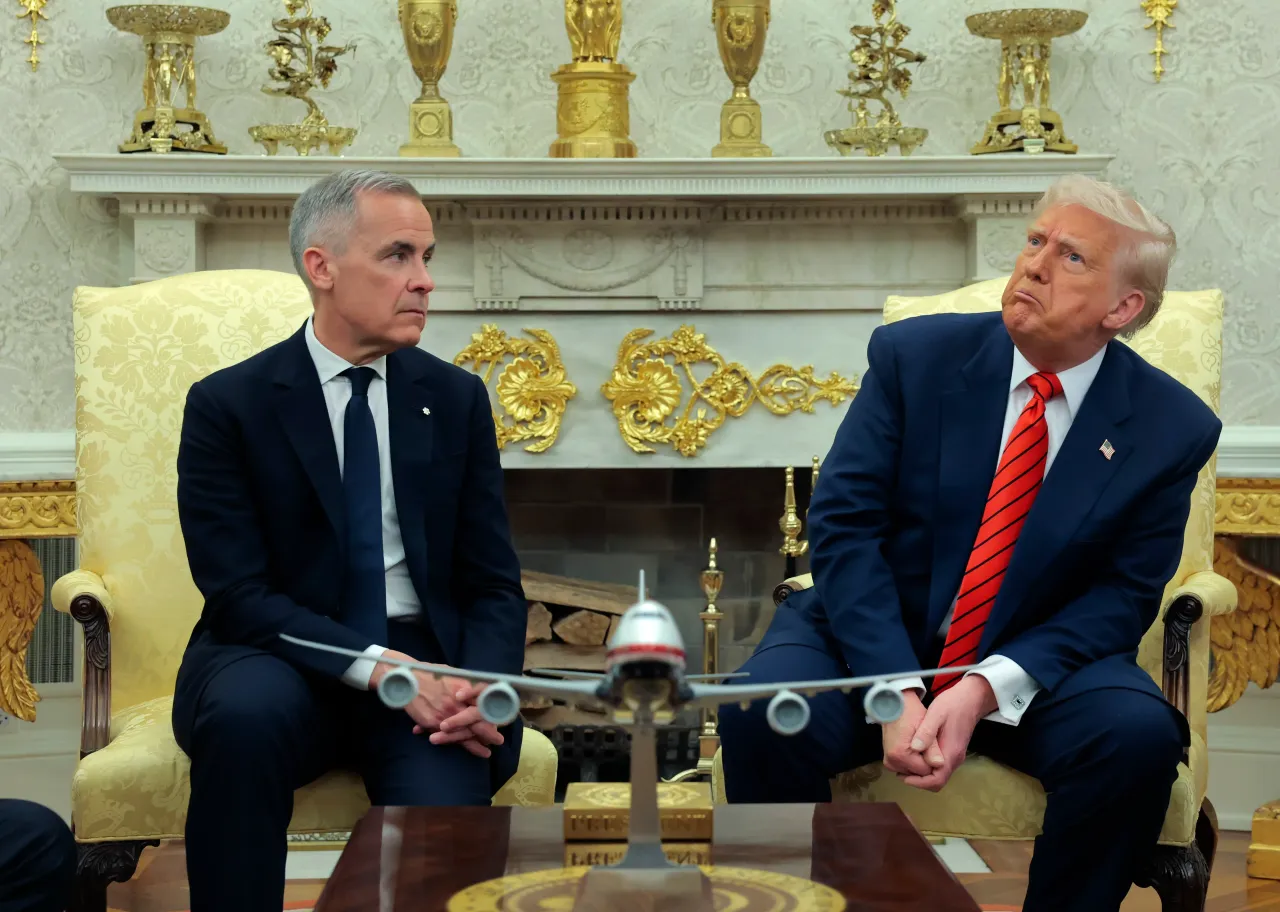Advertisement|Remove ads.
Canada ‘Disappointed’ As Trump Hikes Tariffs To 35% Over Fentanyl Dispute: PM Carney Vows To Keep Talks Alive

Canadian Prime Minister Mark Carney said Ottawa was disappointed over U.S. President Donald Trump’s latest move to raise tariffs on Canadian goods to 35% from 25%, but would carry on trade negotiations with its southern neighbor.
The new tariffs were imposed by Trump in an executive order on Thursday, which said that Canada “failed to cooperate” with the U.S. to curb the flow of illicit drugs like fentanyl. However, the tariffs do not apply to goods compliant with the U.S.-Mexico-Canada (USMCA) trade agreement.
In a statement posted on X, Carney said that while the Canadian government is disappointed by the tariff move, it will remain committed to the USMCA. He added that his government will work to protect jobs and invest in “industry competitiveness” for sectors such as autos, lumber, and steel, which will be the most affected by the tariffs. The bilateral trade between the two countries stood at $762.1 billion in 2024.
Retail sentiment on Stocktwits on iShares MSCI Canada ETF was in the ‘bearish’ territory at the time of writing.
Carney also noted that Washington abiding by the USMCA has ensured that Canadian goods, on average, face one of the lowest tariffs among the trading partners of the U.S. He also added that Canada only accounts for 1% of all fentanyl shipments into the U.S., and his government is working intensively to reduce the volumes further.
While the U.S. decided to impose additional tariffs on Canadian goods, Mexico was granted an extension of 90 days to negotiate a trade agreement following a phone call between Mexican President Claudia Sheinbaum and Trump on Thursday morning.
Trump had said early on Thursday that it would be “very hard” to make a deal with Canada, after Ottawa’s move to recognize Palestine during the United Nations General Assembly in September. Carney had also said that the two sides may not reach a deal by Trump’s deadline.
Also See: With Trump Tariffs Kicking In, Southeast Asia’s Factory Mood Slips To Pandemic-Era Lows
For updates and corrections, email newsroom[at]stocktwits[dot]com.












/filters:format(webp)https://news.stocktwits-cdn.com/large_tesla_fsd_jpg_f113fd1ea5.webp)
/filters:format(webp)https://st-everywhere-cms-prod.s3.us-east-1.amazonaws.com/unnamed_jpg_9dff551b50.webp)
/filters:format(webp)https://news.stocktwits-cdn.com/large_Getty_Images_2212147411_jpg_a8bf4473f2.webp)
/filters:format(webp)https://news.stocktwits-cdn.com/large_Getty_Images_2230137825_jpg_d14459f501.webp)
/filters:format(webp)https://news.stocktwits-cdn.com/Aashika_Suresh_Profile_Picture_jpg_2acd6f446c.webp)
/filters:format(webp)https://news.stocktwits-cdn.com/large_brian_armstrong_OG_jpg_3ac8291bf2.webp)
/filters:format(webp)https://news.stocktwits-cdn.com/jaiveer_jpg_280ad67f36.webp)
/filters:format(webp)https://news.stocktwits-cdn.com/Getty_Images_2227994915_jpg_357c625963.webp)
/filters:format(webp)https://news.stocktwits-cdn.com/large_paramount_skydance_warner_bros_discovery_jpg_709742214d.webp)